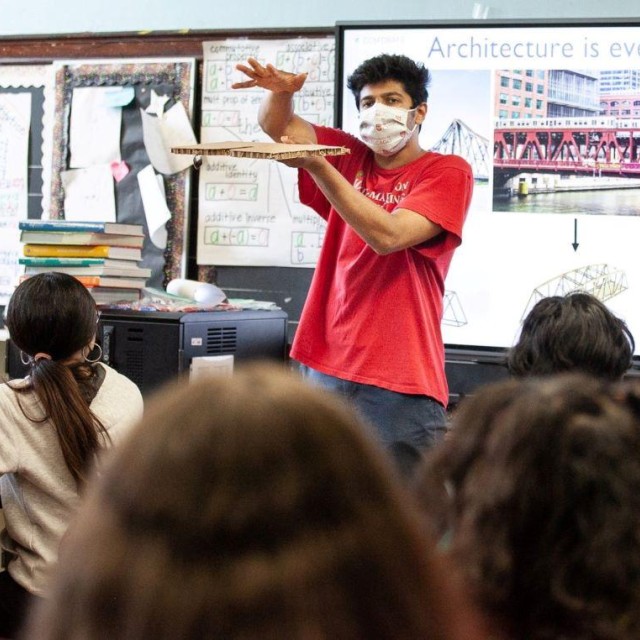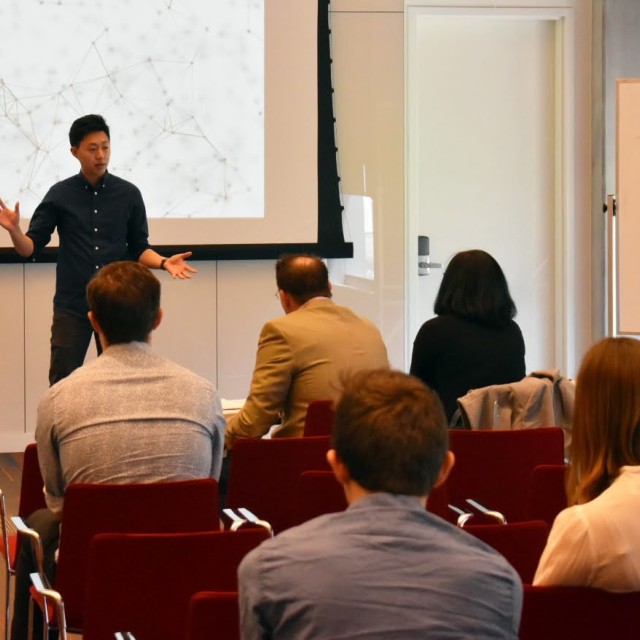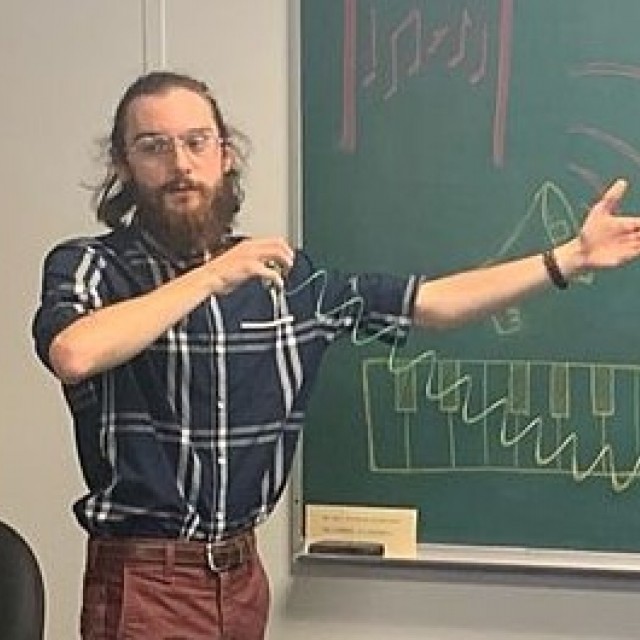PME Science Communications Program
The PME Science Communications Program develops and enhances students’ ability to communicate science effectively to a wide variety of audiences, distill their research into a clear message, and understand their audiences so they can spontaneously tailor the scope and content of their presentation to their needs and interests.
Through this program, students also develop proficiency incorporating community-involved scholarship and public engagement as an essential part of their professional practice, engaging with the public through science to make it more accessible, generating more positive attitudes towards scientific research, and creating long-term connections with the community.
Using a curriculum specifically designed for research scientists, the PME Science Communications Program is an experiential and practice-focused introduction to effective science communication that aims to expand graduate students’ abilities to effectively engage a broad range of audiences with their work.
Students who are accepted into and enroll in this program attend 8 training workshops over two years, and complete two capstone projects aimed at translating their own research and presenting it to the general public - a floor program engagement activity at the end of year 1, and a classroom learning experience at the end of year 2
PME graduate students in this program:
- get an introduction to effective science communication strategies and constructivist teaching theory
- have access to a group of experts and peers with whom to practice communicating research work as they prepare for the candidacy exam, poster sessions, and professional conferences
- are part of a cohort that works collaboratively and creatively to meaningfully engage a broad array of audiences in STEM
- receive a half-credit toward their degree teaching requirement
- have access to PME’s ongoing partnership with the Museum of Science and Industry (MSI) to deliver floor programs, Junior Science Cafes, and engage the public through events like Science Works and Engineering Your Future.
Students who complete this program and are interested in further developing their skills can apply to become PME Science Communications Fellows. Fellows work with the science communications team to implement the program, provide guidance and critical feedback to peers, and advance the PME science communication mission through sharing resources and leading events.
- 2023-2024 Fellows: Edward Ionescu, Anna Slezak
- 2022-2023 Fellows: Anchita Addhya, Carlos Medina Jimenez, Adarsh Suresh
- 2021-2022 Fellows: Chris Conner
- 2020-2021 Fellows: Aaron Alpar, Manish Singh
- 2019-2020 Fellows: Taylor Gray, Paul Jerger
If you are interested in participating in this program or becoming a Science Communications Fellow, please contact Laura Rico-Beck at lricobeck@uchicago.edu.
Graduate students trained in science communication and pedagogy engage middle and high school students through
- Junior Science Cafés led in classrooms, at science fairs, and remotely
- the PME No Small Matter Molecular Engineering Fair
- public events like MSI's Science Works and Engineer Your Future
- school's science fairs and career days
To learn more about these programs and connect your school or classroom with these resources, contact Laura Rico-Beck at lricobeck@uchicago.edu.



